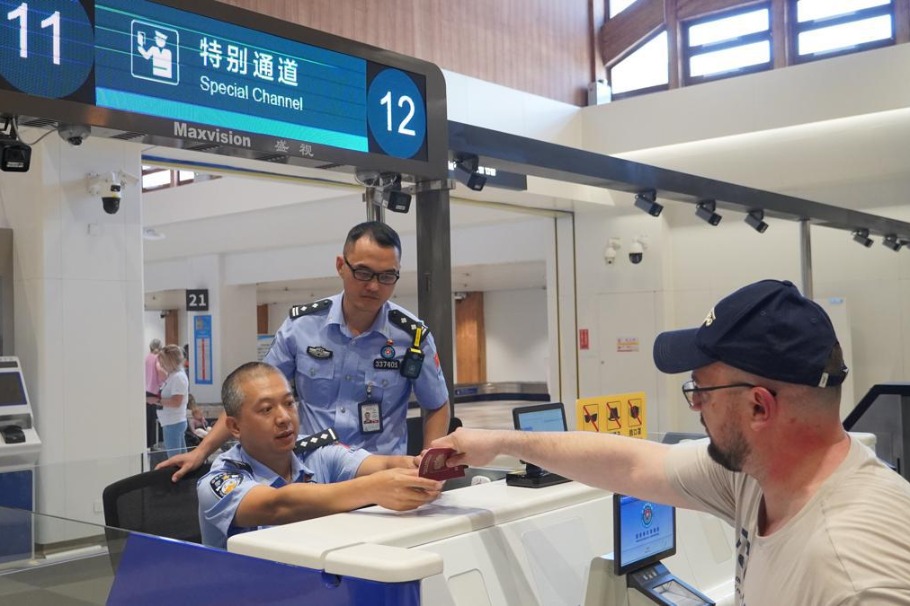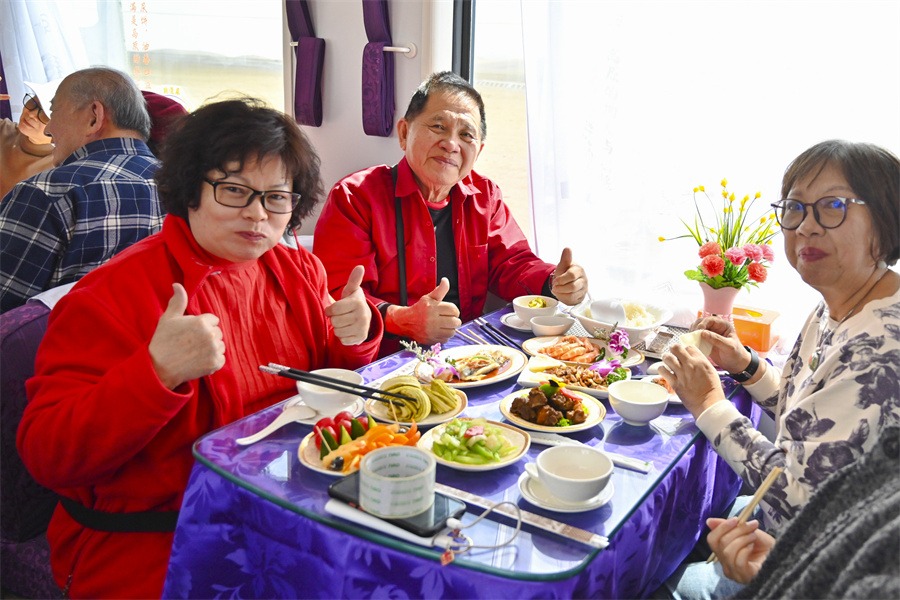Intl standard issued for online travel
China plays key role in ensuring quality of internet services for tourism industry


During the May Day holiday period, tourism demand saw a significant surge, with a sharp increase in bookings for hotels, flights and tours. Hotel bookings during the holiday period rose by more than 120 percent compared to the previous week, according to travel portal Tuniu.
While online has become the main way in which people book travel, greatly enhancing convenience, it has also highlighted persistent industry challenges, including issues such as difficulties with cancellations and changes, and big data-driven price discrimination.
To address these problems, safeguard consumer rights and drive the high-quality development of the tourism industry, China recently spearheaded the forming of a new international standard — the "Tourism and Related Services — Online Travel Agency — Guidelines for Online Accommodation Booking Platform Services" (ISO9468:2025).
As the world's first international standard for online travel agencies, it marks a major breakthrough for China in global standardization efforts.
The international standard was proposed in late 2021 by the International Organization for Standardization, and was approved with an overwhelming 97.88 percent approval rate during the project phase.
After three years of development, the standard was unanimously approved by all ISO member countries and published. It has also been adopted as a national standard in countries such as the United Kingdom, reflecting the growing international recognition of Chinese standards.
Liu Jianming, director of the tourism quality supervision and management office at the Ministry of Culture and Tourism, noted that Chinese experts currently lead four of the 11 working groups under the ISO's Tourism Technical Committee, and are actively involved in the creation of global tourism service standards.
In line with global standardization trends, China has initiated 10 projects via the technical committee, significantly increasing its participation in the field of international tourism standards, Liu said.
Yao Xin, head of the drafting team for the guidelines and secretary-general of the China Council for the Promotion of International Trade Commercial Sub-council, explained that the new standard focuses on improving the entire process of online accommodation bookings.
It introduces 10 key measures, including a ban on bundled consumption and mandatory accessibility services, to ensure a better, fairer and more convenient booking experience for global travelers.
The standard covers nine chapters, addressing terminology, principles, responsibilities, service provision and quality improvement, among others. It aims to standardize platform services by clarifying responsibilities, enhancing transparency, standardizing processes and improving security, while establishing a trust mechanism between users, platforms and providers.
To address the common issue of difficult cancellations and changes, the standard requires providers to clearly display their cancellation policies, such as whether cancellations are free, ensuring travelers are fully informed. Yao emphasized, "These rules help build consumer trust and offer a worry-free experience for global travelers."
The standard also aims to protect users from practices like big data-driven discrimination, involuntary bundling and hidden fees. Platforms must avoid using big data to impose unfair conditions and must clearly display all charges, ensuring transparency and giving users the freedom to make informed choices, thus reducing disputes.
For user reviews, the standard calls for a combination of technology and human oversight to verify the authenticity of reviews and prevent fake or malicious comments. It also allows users to edit reviews and filter them based on specific criteria.
In a significant first, the standard mandates accessibility services on all online booking platforms. It lists key accessibility features, such as parking spaces and accessible pathways, and recommends adding accessible facilities in rooms and bathrooms.
"The standard calls for providing booking information in text, audio, or Braille formats to ensure equal access for elderly and disabled individuals. Accessibility should be a basic requirement for the industry," Yao said.
Li Guang, a member of the national tourism standardization technical committee, highlighted the cross-regional nature of accommodation bookings and the role of online platforms in supporting international transactions.
However, he noted that differences in legal frameworks, transaction practices and cultural contexts create information barriers and obstacles between markets. With varying operating rules across countries, there is a pressing need for a unified standard that is widely recognized by consumers, platforms and accommodation providers.
Li pointed out that China ranks among the global leaders in online accommodation bookings, with extensive data and experience, and has fostered numerous successful online travel companies.
"The guidelines consolidate valuable global experiences in online accommodation booking, focusing on addressing the sector's key challenges," Li said.
As the general manager of legal and risk control at China Youth Travel Service, Li stressed that adhering to international standards is crucial for improving service quality.
The company uses online travel agency reviews to improve services and the new rules standardize feedback mechanisms, offering clear benchmarks for quality, Li said.
"This international standard reflects China's active role in the global tourism industry and supports Chinese companies' integration into the global market, fostering both domestic and international development," Li said.
"The standard will break down information barriers, improve efficiency, reduce costs and build trust, offering consumers safer and more efficient services while promoting international tourism cooperation," he added.
Jiang Wenheng, director of the cultural tourism industry and data center at Trip.com Group's research institute, said that the group will actively help promote the implementation of the new standard in China.
Jiang said that as China's online travel market rapidly expands, while platform efficiency has improved, challenges have emerged, such as there being no rooms available upon arrival, complex cancellation policies, and unclear data usage boundaries. These issues are precisely the focus of the new ISO standard.
"In cancellation services, varying policies among suppliers create confusion for users; in payment services, international users have different habits, leading to inconsistent experiences; and regarding platform responsibilities, users often struggle to distinguish between platforms and accommodation providers, leading to disputes," Jiang said.
He highlighted that Trip.com Group has explored solutions such as optimized cancellation labels, AI-driven review validation and cross-border customer service systems. The group said it plans to align more closely with international standards to address service gaps and transition to a more "responsibility-based" platform model.
He believes the standard will help platforms improve communication with users and provide a solid regulatory foundation for businesses.
"This international standard offers global online travel agencies a unified operational framework, promoting greater user trust, service transparency, and social responsibility, and fostering a fairer, more inclusive tourism environment," Jiang said.
liyingxue@chinadaily.com.cn
- Survivor of Japan's 'comfort women' system dies, leaving 7 on Chinese mainland
- China updates data of first 18 Soviet anti-Japanese aviation martyrs during WWII
- Changsha dazzles visitors during vibrant May Day holiday
- China introduces new guidelines on agricultural sci-tech system
- Xi calls on China, Russia to resist attempts to sow discord in friendship
- Former senior political adviser prosecuted for bribery, abuse of power





































